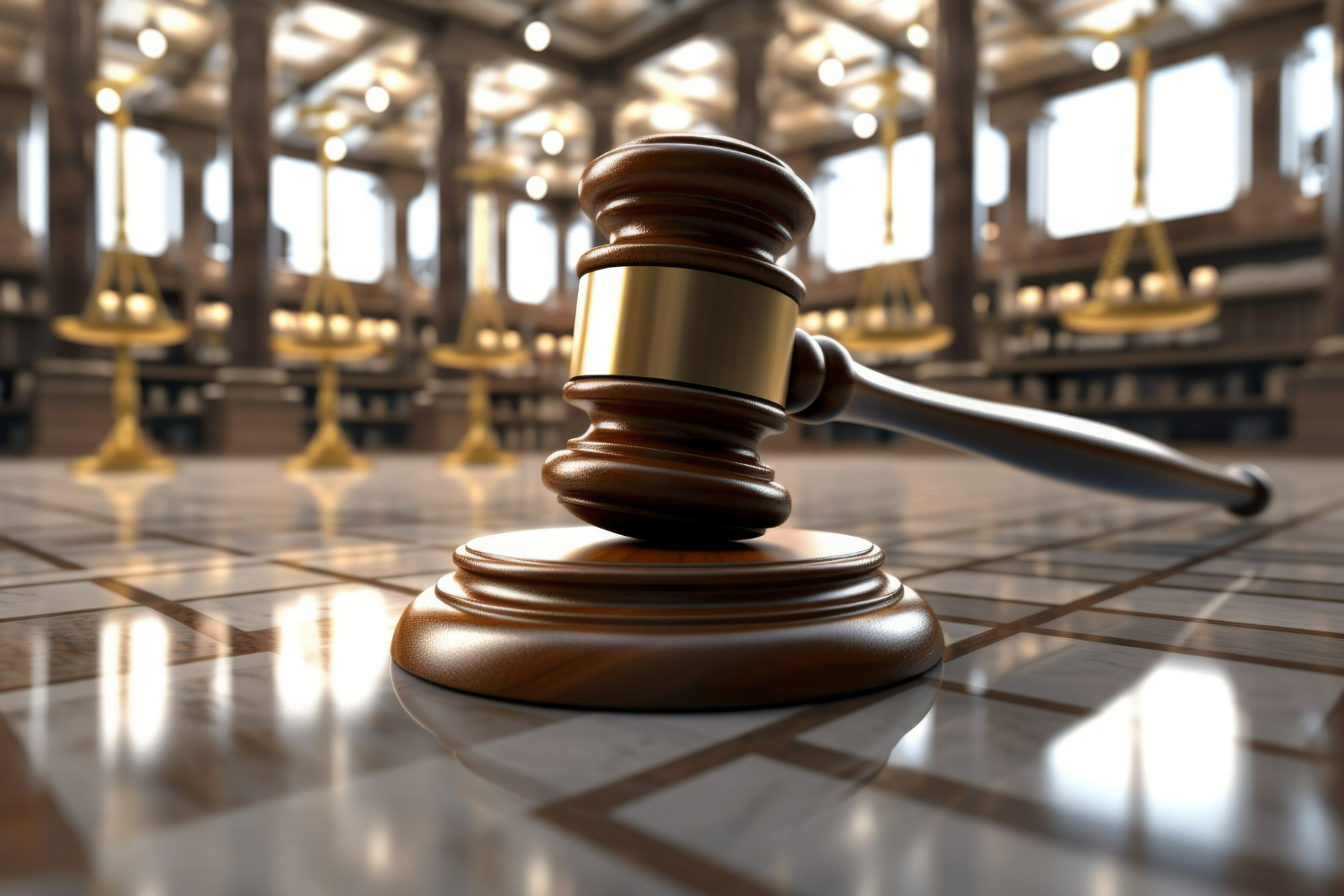-
How To Hire A Divorce Lawyer
Learn how to hire a divorce lawyer effectively with our guide. Discover important considerations, key steps, and tips for choosing the right divorce lawyer for your needs. Ensure you navigate the divorce process with expert legal guidance.
-
The Benefits of Collaborative Law: A Peaceful Alternative to Litigation
In today’s fast-paced world, conflicts and disputes are inevitable. Whether it’s a disagreement between business partners, a family dispute, or a divorce, finding a resolution can often be a stressful and costly process. Traditional litigation, with its adversarial nature and lengthy court battles, can take a toll on all parties involved. However, there is an
-
The Benefits of Family Mediation: Resolving Disputes Amicably
In today’s society, conflicts within families are not uncommon. From disagreements over finances to disputes about child custody, these conflicts can often strain relationships and cause emotional distress for all parties involved. One way to resolve these disputes in a peaceful and amicable manner is through family mediation. Family mediation is a process in which
-
Employment Restrictive Covenants
Explore the intricacies of employment restrictive covenants with DLS Solicitors. Our concise guide offers insights into navigating these legal agreements, ensuring clarity for both employers and employees. Stay informed and protect your interests effectively.

What is the Court of Protection?
The Court of Protection in England and Wales has the authority to make decisions for individuals who are unable to make their own decisions due to mental or brain-related conditions such as dementia, autism, or brain injury. The individual lacking capacity is referred to as “P” during proceedings to simplify identification.
Court of Protection hearings can take place at various locations, including the Royal Courts of Justice or First Avenue House in London, as well as at county courts outside of London. The Court is comprised of multiple judges who preside over cases within the jurisdiction of the Court of Protection.
What can the Court of Protection do?
The Court of Protection has the authority to determine whether an individual possesses the capacity to make specific decisions for themselves. If someone lacks this capacity, the court can then make decisions in their best interests.
The Court of Protection cannot intervene in decisions made by individuals who have the capacity to make them for themselves. Additionally, the Court cannot mandate actions that are not available or deemed appropriate by professionals, such as demanding medical treatments that a doctor believes will be ineffective or services that a local authority considers superfluous to meet an individual’s needs.
What's the law that applies to the Court of Protection?
The Court of Protection was established by the Mental Capacity Act 2005 and operates according to the provisions set out in that Act. In addition to the Mental Capacity Act, the court is mandated to uphold individuals’ human rights as outlined in the Human Rights Act 1998, including the right to a fair hearing and the right to privacy and family life.
Furthermore, the Court of Protection adheres to specific rules and guidance, including the Mental Capacity Act Code of Practice, the Mental Capacity Act Deprivation of Liberty Safeguards Code of Practice, the Court of Protection Rules, and the Court of Protection Practice Directions. These frameworks ensure that the court operates within legal and procedural guidelines when making decisions concerning individuals lacking capacity.
Do all decisions for people who lack capacity have to be made by the court?
Typically, when someone lacks the capacity to make decisions, their family and carers collaborate to decide what is in the person’s best interests, aiming to consider the person’s perspective. If everyone agrees on the best course of action, involving the court is often unnecessary. However, disagreements among family members, carers, or professionals may arise, warranting court intervention to resolve disputes.
The Court of Protection has the authority to make decisions related to welfare, medical treatment with significant consequences, and property and financial affairs, such as appointing deputies or determining the suitability of the Lasting Power of Attorney. Before involving the Court, parties should explore alternative resolution methods like mediation to address the situation amicably.
What does the Court have to do with deprivation of liberty?
The Deprivation of Liberty Safeguards (DoLS) are a component of the Mental Capacity Act designed to protect individuals from being deprived of their liberty in hospitals or care homes. Under DoLS, a person can be subject to urgent or standard authorizations with specific protections in place, including support from a relevant person’s representative, as outlined in the DoLS Code of Practice.
If concerns arise about a person’s deprivation of liberty, a Section 21A application under the Mental Capacity Act can be made to the Court of Protection for urgent review, with distinct legal aid rules applying to these cases. However, if a person is deprived of liberty outside of a hospital or care home, or if they are under 18, the DoLS cannot be used. In such cases, a public body, typically the local authority, may apply to the Court to authorise the deprivation of liberty using a special process known as ‘community DoL’ or ‘Re X’, which allows the Court to make an order without a hearing if there is no disagreement that the deprivation of liberty is in the person’s best interests.
How does the court decide what to do?
The Court gathers necessary evidence and insights by reviewing relevant documents concerning the individual (referred to as “P”), such as social services records or bank statements. Those involved in the proceedings can provide their perspectives through witness statements outlining their opinions and desired outcomes.
At times, the judge may determine that additional information is required directly from various sources, which could involve requesting a report (s49 report) from a visitor—either a general visitor with expertise in social work, advocacy, nursing, or finance, or a special visitor such as a psychiatrist—who assesses P and submits a report to the court. The judge might also seek specific information from a local authority, an NHS body, or an independent expert to advise on P’s capacity to make decisions or the potential outcomes of available choices.
How will my case be dealt with?
The Court’s approach to each case varies based on the type of application. For many cases, particularly those concerning property and affairs, decisions are made without a formal court hearing, referred to as a decision “on the papers.”
The Court follows specific pathways tailored to different case types. In most welfare cases, the initial step involves a judge reviewing the application and granting permission to proceed. Additionally, consideration is given to how the individual (referred to as “P”) will participate in the proceedings (see details below).
In a welfare case, the court schedules a case management conference to determine the necessary steps to address the case’s questions and gather essential evidence, such as medical or social services records. The number of subsequent hearings needed before reaching a final decision depends on the complexity of the case.
If significant disagreements exist about past events relevant to determining what is best for the individual (referred to as “P”), the judge may conduct a fact-finding hearing to clarify these matters.
If the parties cannot reach an agreement to allow the Court to issue a consent order, the case will proceed towards a final hearing. This typically involves an advocate meeting where solicitors and barristers work to ensure that only essential questions are posed to the judge during the final hearing. If you do not have legal representation, you should be invited to this meeting.
Following the Advocates Meeting, there will be a final management hearing where the judge ensures that all preparations are in place for the final hearing. During the final hearing, the Court will consider all necessary evidence to reach a decision.
In cases related to a person’s property and affairs, the method of decision-making hinges on whether there is a dispute. If there is no dispute, the case is likely to be resolved without a formal hearing. However, if there is a disagreement, the Court will typically arrange a private dispute resolution hearing to explore potential resolutions. If the dispute persists, the case may proceed before a different judge for resolution. Information disclosed during this hearing cannot be relied upon if the case progresses further.
How will P take part?
The Court must always consider how “P” can participate in the case.
In a welfare case, “P” is typically a party. However, in cases concerning property and affairs (excluding statutory wills and making gifts), “P” is usually not a party.
If “P” is a party, the judge must determine whether “P” has the capacity to make decisions regarding the case (known as litigation capacity). If “P” lacks this capacity, they will require a litigation friend or an accredited legal representative to make decisions and represent them. A litigation friend often engages a lawyer (referred to as ‘instructing a lawyer’). An accredited legal representative is a lawyer.
Even if “P” is not a party, the judge will explore ways to involve them, particularly in understanding their wishes, feelings, beliefs, and values, to ensure decisions are made in their best interests. In some cases, this may involve the judge meeting with “P” directly.
Who/What is the official solicitor?
In certain cases, “P” may be represented by the Official Solicitor, who is a civil servant and lawyer appointed by the government but operates independently. If there is no suitable litigation friend available (and arrangements can be made for legal costs), the official solicitor can serve as the litigation friend for the individual, supported by staff specialising in Court of Protection cases.
When the individual lacks the capacity to make decisions, the official solicitor determines what is in their best interests and presents this to the court. Even if it’s apparent what the person would prefer, the official solicitor may advocate differently if she believes it’s not in their best interests. Nonetheless, the official solicitor ensures that the person’s wishes and feelings are thoroughly investigated and conveyed to the judge in every case.
Do I need to be a party?
You may become a party if you are named as a respondent by the applicant, which means you may not have a choice in the matter. Alternatively, you might be aware of a court case involving someone you know and wish to address the court, or the court may issue an order asking you to decide whether you want to be a party.
The primary difference between being a party and not being a party is that parties have the opportunity to speak to the judge and express their views on what should happen. However, there are instances where individuals not designated as parties are permitted to attend court hearings and share their opinions. Legal professionals involved in the case can assist you in deciding whether to become a party by explaining the available options.
If you decide to become a party, you will need to complete the COP5 form and submit it to the court. The remainder of this document assumes that you are participating as a party in the proceedings.
What will I have to do?
It is essential to review all the documents that are generated to understand the evidence presented. Additionally, you should prepare a witness statement outlining your perspectives and providing the judge with comprehensive information to assist in making a decision.
Who will hear my case?
The majority of cases in the Court of Protection are heard by district judges. More significant cases are presided over by circuit judges, while the most critical cases are heard by high court judges. Some straightforward decisions regarding “P’s” property and affairs can be made by authorised court officers, who are civil servants under judicial supervision.
What will happen at the hearing?
The proceedings at the hearing depend on whether they’re focused on determining what information the judge needs or making final decisions. Currently, due to the impact of the coronavirus outbreak, most hearings are conducted via video or telephone. The Transparency Project has provided a useful guide on remote hearings, which applies to practical aspects such as technology, despite being aimed at hearings involving children.
During a hearing where final decisions are made, it’s crucial to understand that the judge ultimately decides if the person lacks capacity and what’s in their best interests. Each party, including yourself, must explain to the judge why they should make specific decisions.
The sequence of the hearing can vary, but typically, the applicant, often a public body like a local authority or NHS Trust represented by legal counsel, will outline their desired outcomes first. They usually provide a position statement or skeleton argument to the court and you, detailing their proposed actions. They may present witnesses to address capacity and best interests, allowing you to cross-examine them with the judge’s assistance. You should prepare essential questions beforehand to ensure nothing is overlooked.
You can bring a McKenzie friend to the hearing for support, helping by taking notes and reminding you of questions. This person can also speak to the judge if permitted, adhering to any court orders regarding confidentiality.
You’re not obligated to give evidence, but the judge will likely want to hear your perspective on matters like why returning home is in “P’s” best interests. If you do provide evidence, other parties and the judge may ask you questions.
The process is about gathering relevant facts and information, especially concerning the person’s values and important experiences. It’s acceptable to find certain topics challenging to discuss, and you can request breaks or express difficulty to the judge.
After giving evidence, each party usually presents closing submissions to summarise their stance. If the judge can deliver a verdict immediately, they will do so; otherwise, they may reserve judgement and provide it in writing after the hearing.
How should I address the judge?
You will be informed of the judge’s level of authority presiding over your case in the court order sent by the court.
- A district judge is addressed as Sir or Madam.
- A circuit judge is addressed as Your Honour.
- A high court judge is addressed as My Lord or My Lady.
Can I attend the hearing if I am not a party to the case?
Currently, most hearings are conducted remotely, meaning attendance involves joining via video or telephone rather than being physically present in the courtroom.
Here’s how attendance works based on your connection to the case:
- If you’re directly involved in the case, such as as a witness, you should have received details on how to attend.
- If you’re a family member or have another connection to the case, your ability to attend depends on whether the hearing is public or private. In a public hearing, you can attend without permission, but the judge may ask you to sign a Transparency Order outlining what you can and cannot disclose about the case, especially regarding “P.” If it’s a private hearing, you’ll need to request permission from the judge to attend, and they will specify confidentiality guidelines.
- For members of the public, attendance at a public hearing requires no specific action. Again, signing a Transparency Order may be requested by the judge to clarify confidentiality rules. If the hearing is private, you can inquire with the judge beforehand about attending and the related disclosure rules.
For further information on attending remote hearings as a member of the public, refer to the Open Justice Court of Protection Project’s website, which provides additional details.
What happens if I do not understand what is happening in the hearing?
Legal language often includes acronyms or specific references to past laws or guidelines, which serve to facilitate clear communication among legal representatives who understand these terms. While this can sometimes feel like a different language, it ensures that essential facts or issues are communicated effectively within the legal community.
It’s important to acknowledge that you may not always grasp every detail or specific point being made. However, the judge should ensure that you understand the critical aspects when they become relevant during proceedings.
If something is unclear or you have not understood a certain point, don’t hesitate to ask for clarification. It’s encouraged to seek clarification to ensure you have a clear understanding of the proceedings.
What are the most important rules that I need to know about?
Costs:
In welfare cases, typically each party bears their own costs of participation, including legal fees. However, if you act unreasonably—for instance, by disregarding court orders or wasting the court’s time—you may be required to cover the costs of other parties, which can amount to significant sums, potentially tens of thousands of pounds. If concerned about this, it’s advisable to inquire with the judge about steps to avoid being liable for others’ costs.
In cases concerning a person’s property and affairs, expenses are generally paid from the individual’s assets. Nonetheless, unreasonable behaviour may lead to having to cover your own costs or those of others involved in the case.
Confidentiality:
Some hearings are held in private, imposing strict limits on discussing the case or sharing documents. Permission from the judge is required to discuss proceedings or share documents. Even if a hearing is private, individuals can seek permission to attend, but they must adhere to confidentiality requirements regarding P’s identity and details.
What should I do if I disagree with the court’s decision?
If a decision was made without a hearing (“on the papers”), you can request the judge to reconsider the decision using a COP9 application form. This request must be made within 21 days, unless the order specifies a different period. If you received the order later than expected, you should explain the delay in the COP9 form.
If you believe the court has made an incorrect decision, you can seek permission from the judge who made the decision to appeal against it. If they deny permission, you can submit an application within 21 days to another judge to seek permission for the appeal.
What do I need to know about court forms and documents?
All court documents, including those related to deputies and attorneys, are available on the Office of the Public Guardian website.
If you wish to petition the Court to decide on something, you will likely need to complete certain forms: COP1 and COP3. Additionally, if your case involves money or property, you must fill out COP1a. For welfare-related cases, you will need to complete a COP1b form.
You should also prepare a COP24 form containing your witness statement.
For using the Section 21A procedure to challenge an urgent or standard authorization under the deprivation of liberty safeguards, specific forms are required, known as COPDLA, COPDLB, and COPDLC.
The form for applying for ‘community deprivation of liberty’ is the COPDOL11 form. Although this form is primarily completed by a local authority or NHS body, you may need to review specific sections. The public body’s legal representatives should assist you with what is required.
There are also special forms for deputyship applications (COP4) and applications related to powers of attorney.
Guidance notes accompanying each form are available online, providing instructions on which forms to complete and what information to include. It is important to review these guidance notes before completing the forms.
What happens if P dies?
The Court of Protection can only render decisions for P that P would have been capable of making on their own behalf. If P passes away during the proceedings, the Court is no longer able to render decisions on behalf of P, and the proceedings will conclude. The only matters the Court can still decide upon are who will bear the costs of the proceedings and whether any privacy orders protecting P should remain in effect.
Upon P’s passing, the involved parties typically reach an agreement on a consent order, which can be submitted to the judge. This order confirms the conclusion of the proceedings due to P’s passing and outlines how the costs of the proceedings will be handled.
Can I get a lawyer to represent me in the Court of Protection?
You may qualify for free legal representation in certain situations, especially if there’s an urgent or standard authorization in place or if you receive a qualifying benefit. It’s advisable to consult with a lawyer to determine if you’re eligible for legal aid to assist with the costs of hiring a solicitor or barrister.
If legal aid is unavailable but you cannot afford your own legal representation, you might consider reaching out to the charity Advocate to inquire about finding a pro bono barrister who can assist you at no cost.
Alternatively, if you have some funds but cannot afford both a solicitor and a barrister for the entire proceedings, you can seek a barrister who accepts direct instructions (referred to as direct access or public access) to represent you in a hearing. The Bar Council can provide information on barristers who offer this service.
Our team of professionals are based in Alderley Edge, Cheshire. We offer clear, specialist legal advice in all matters relating to Family Law, Wills, Trusts, Probate, Lasting Power of Attorney and Court of Protection.
All author posts


